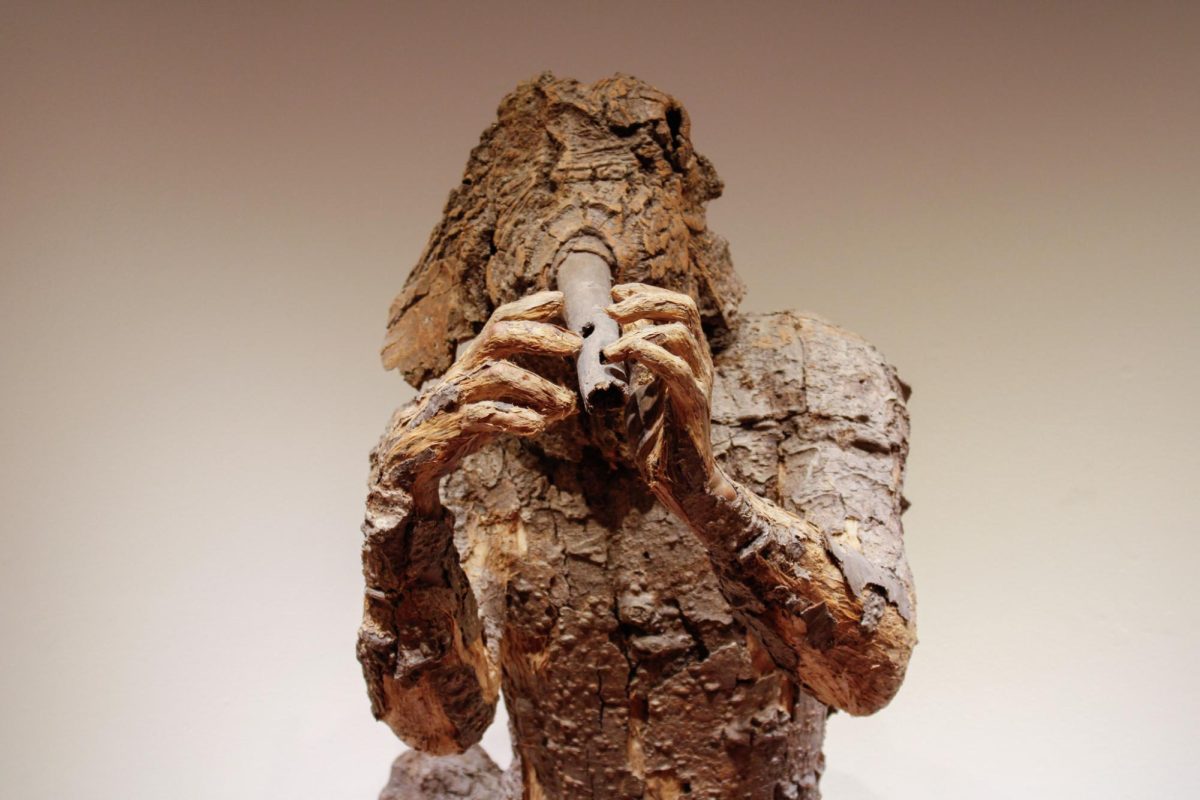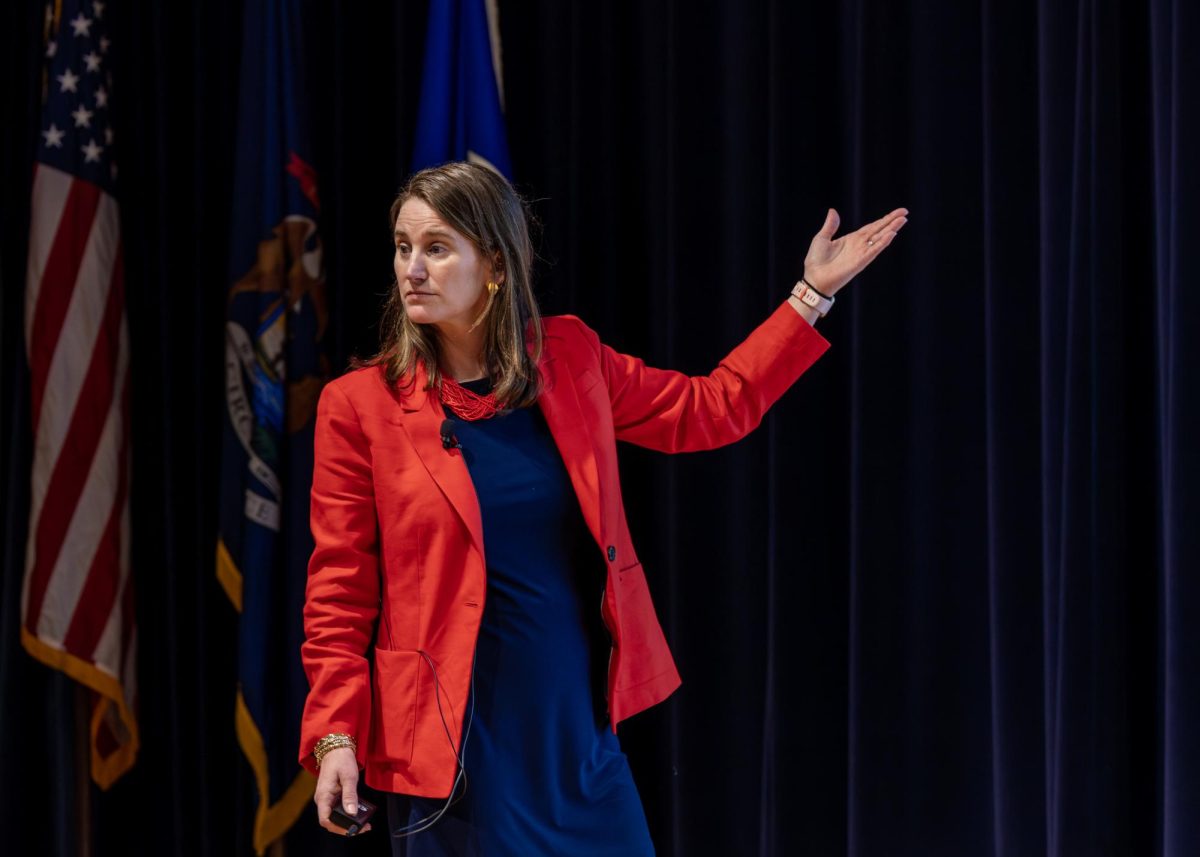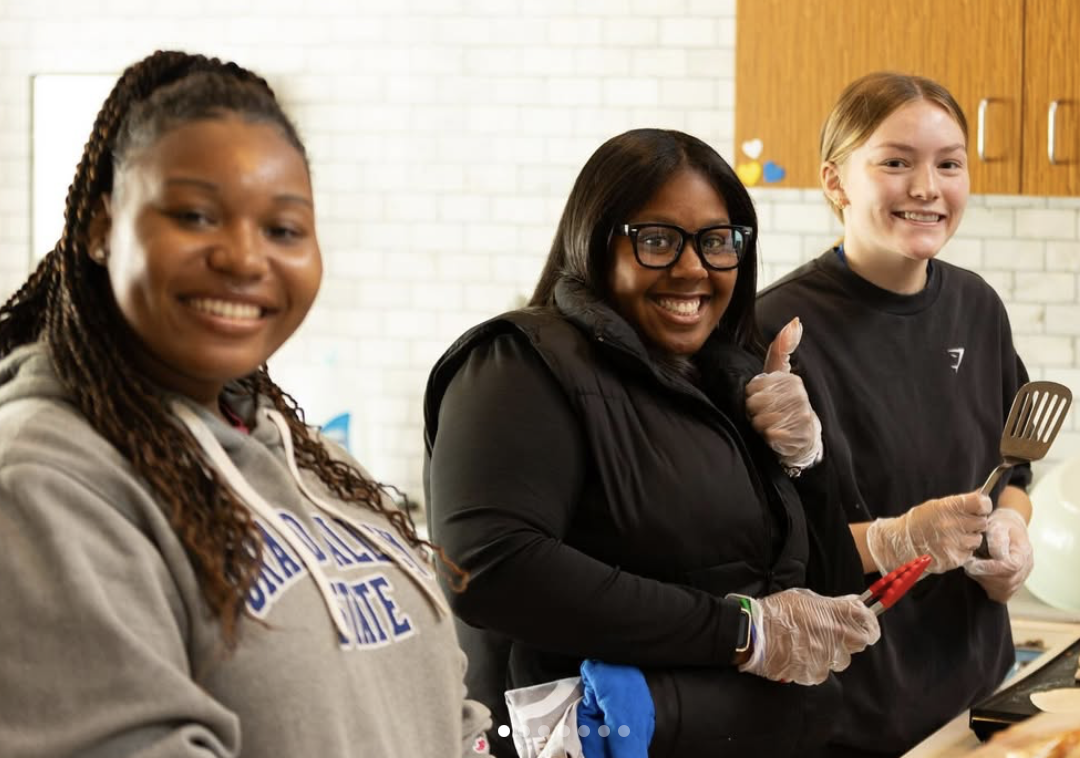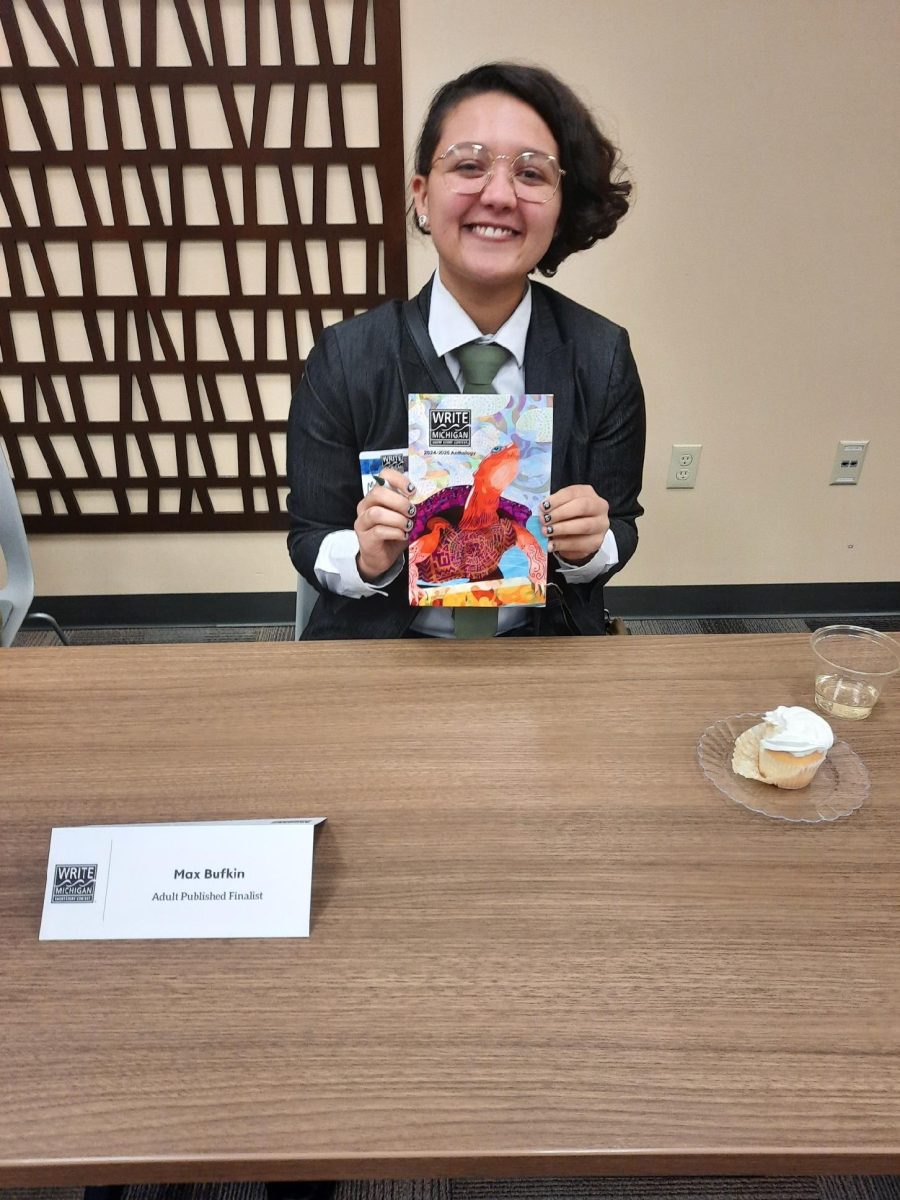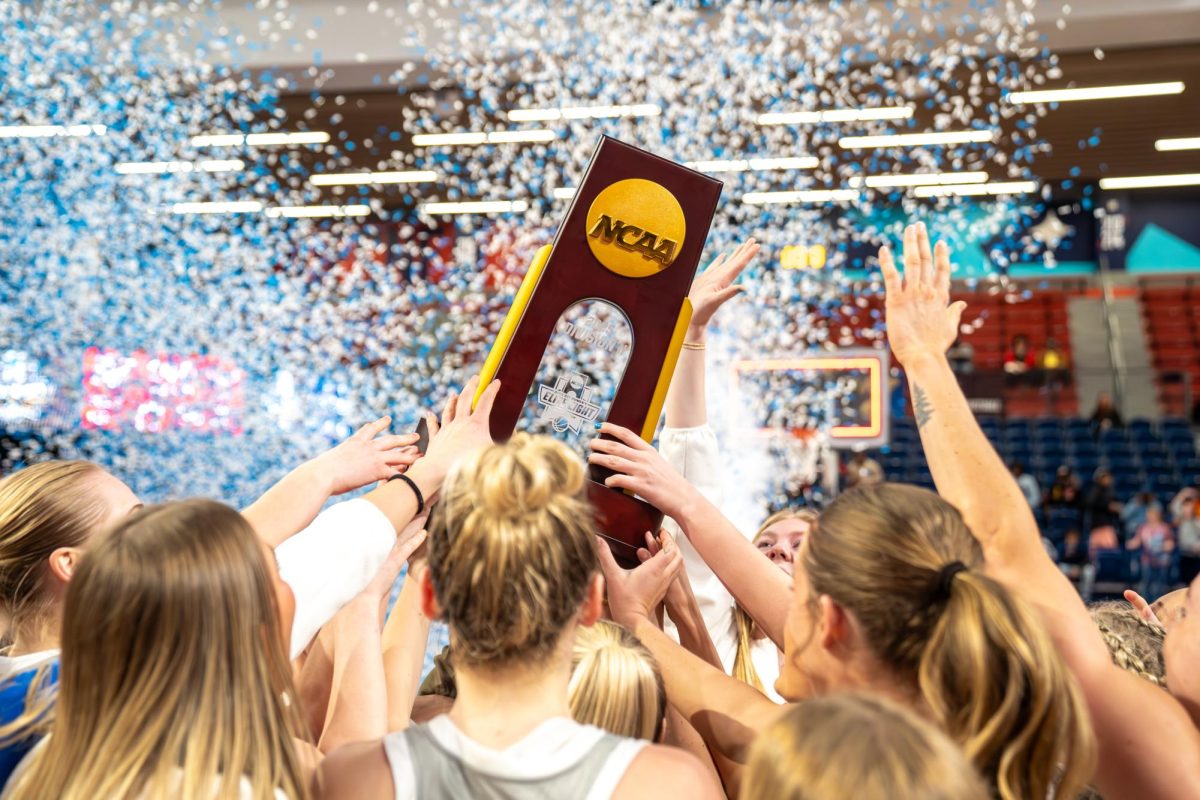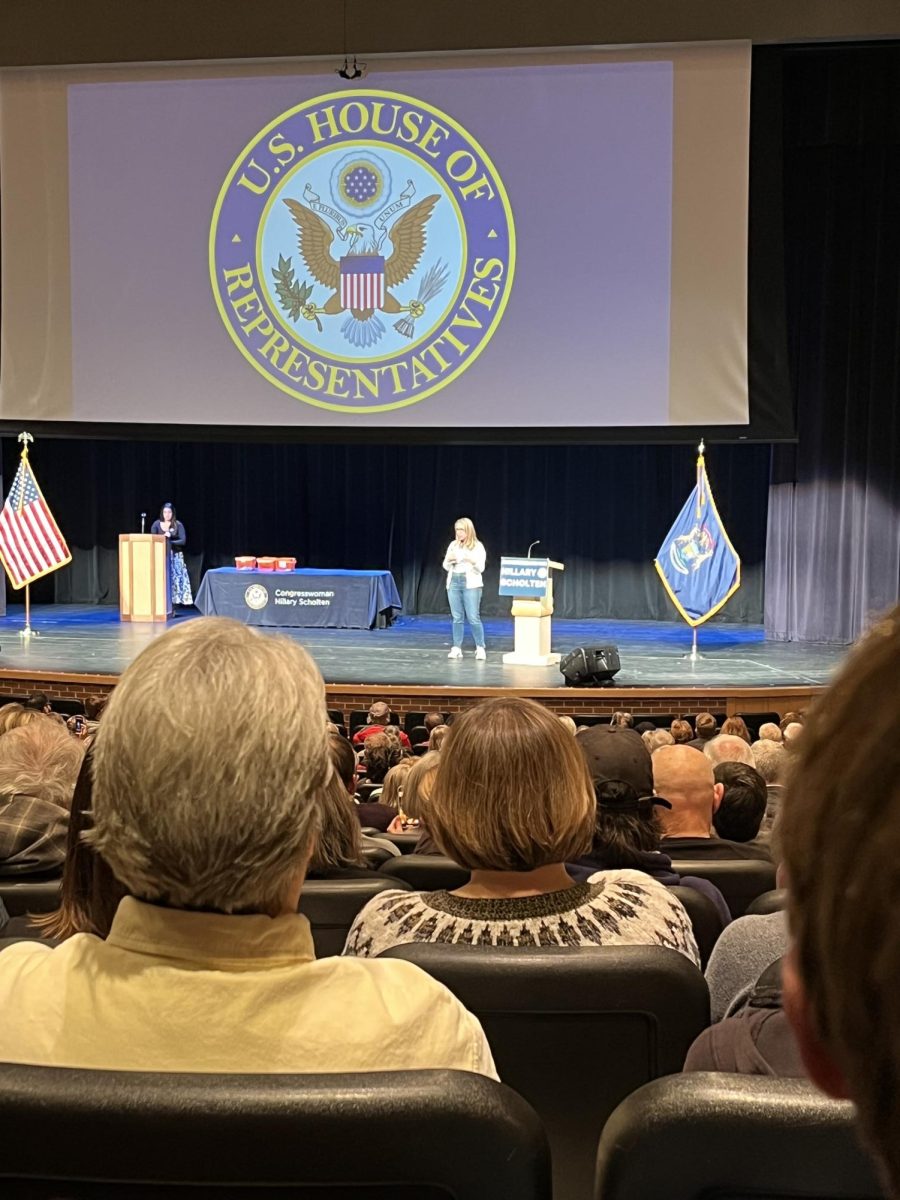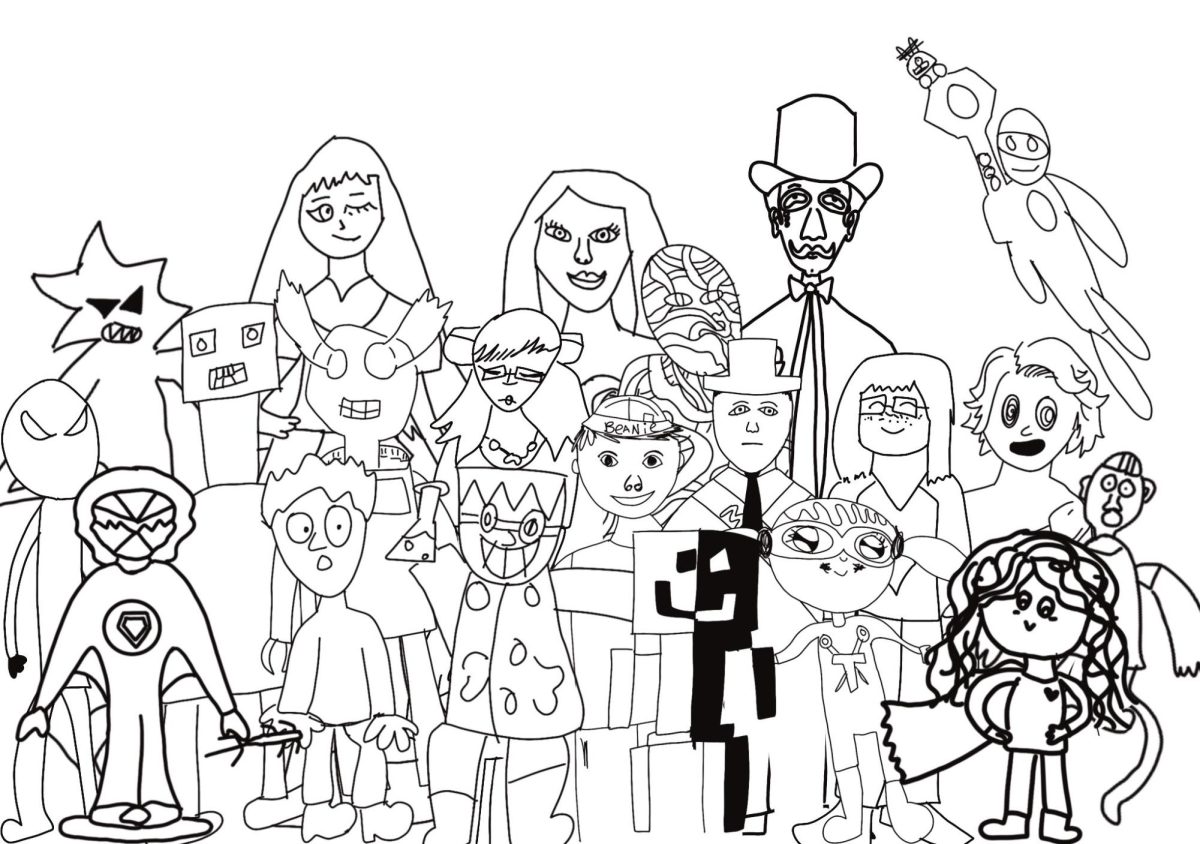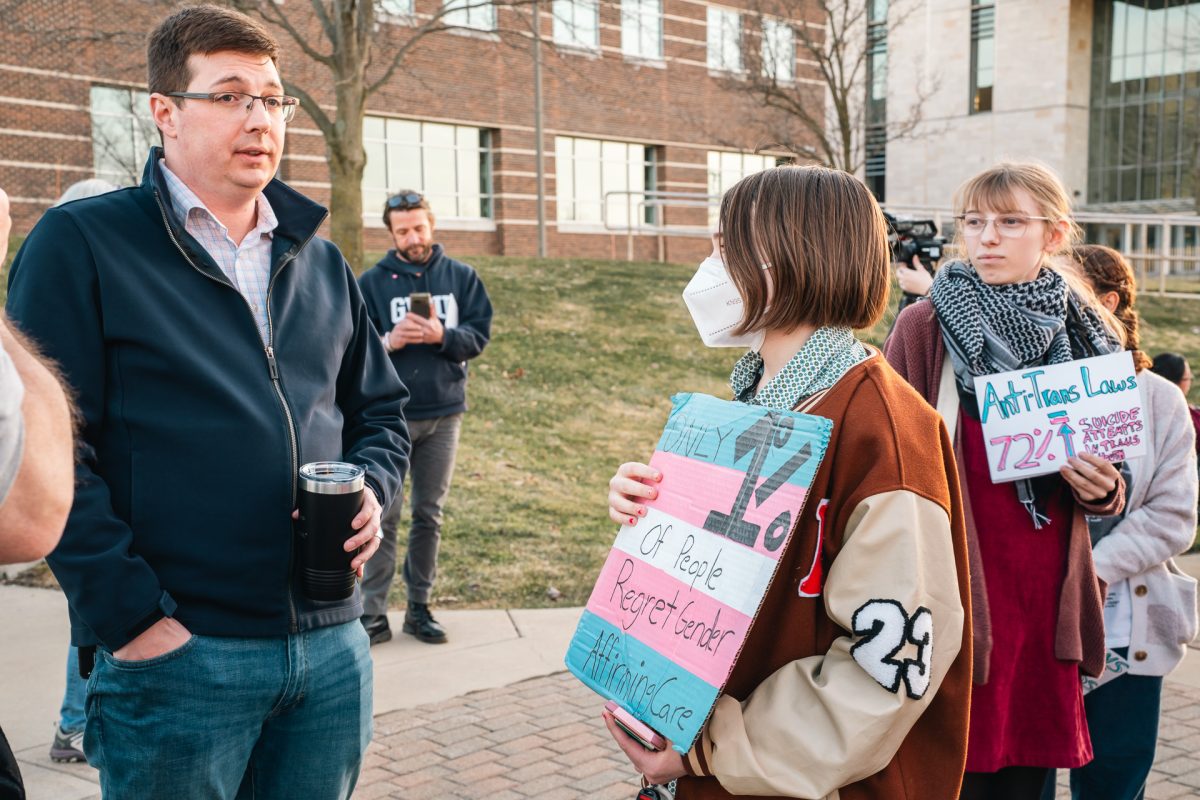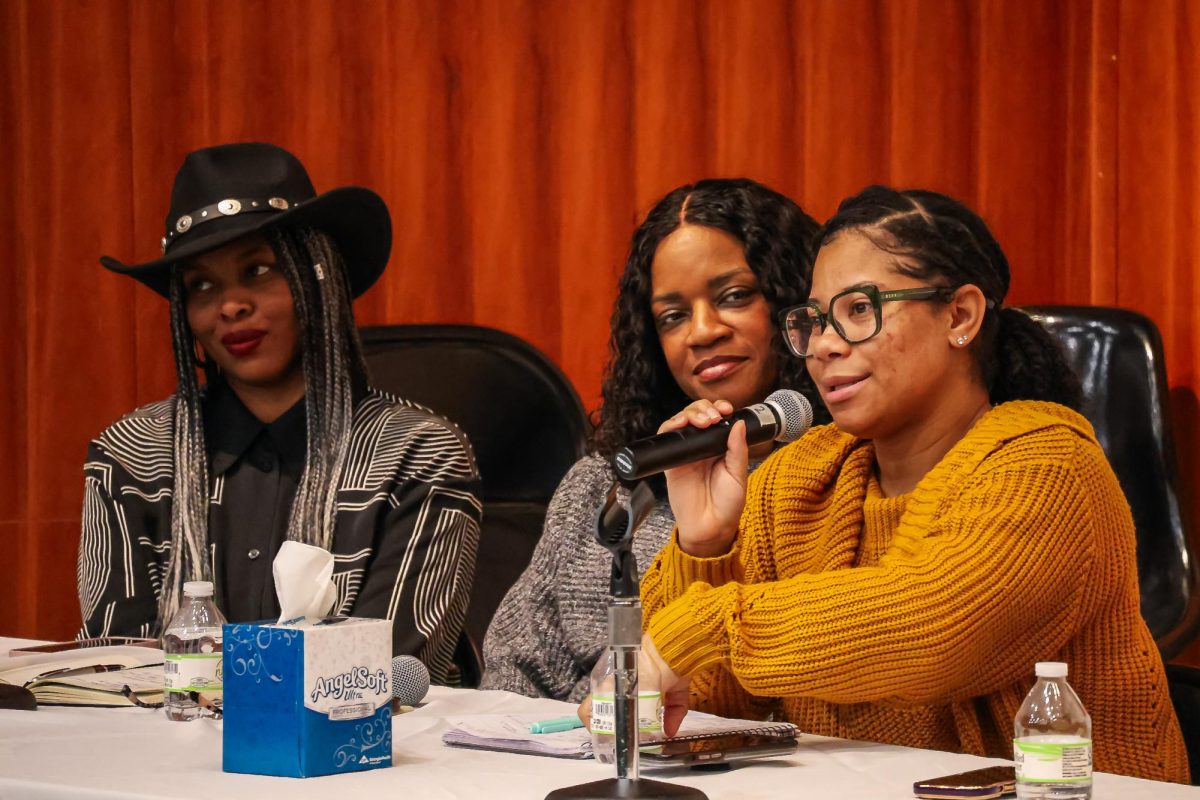Expected closure of an Ottawa County library reflects national controversy
Feb 6, 2023
Patmos Library, in Jamestown Township near Hudsonville, Michigan, will close in early 2025 due to the rejection of a millage by voters and backlash the library received for having LGBTQ-related books on its shelves.
Voters struck down the millage in order to “defund the library” following disputes over content available at the library, which opponents of the library claimed were setting up children to be “groomed” for sexual assault and pornography. The millage encompasses the majority of the funds for the library’s budget, about 85%.
The case of the Patmos Library is only one of many, as conservative community members and leaders across the nation call for increased censorship of media available to members of their community, and particularly, children. These actions lead to concerns about the greater impact losing libraries can have on a community.
Associate Dean of University Libraries at GVSU, Kristen Meyer, said she was devastated by the situation occurring with the Patmos Library.
“Actions like this are deeply concerning and threaten the preservation of our free and democratic society,” Meyer said. “Libraries facilitate the free exchange of ideas and defend First Amendment constitutional freedoms, including the freedom to speak, publish and read.”
In addition to the hate Patmos Library has received from community members, it also received a threatening message from Republican 11th Congressional District Chair, Shane Trejo.
“Time to shut down the library by force,” Trejo said on Facebook. “And then perhaps charge the people writing these checks as accessories for child abuse.”
A board member of the library has filed a report on the hate comment for safety measures to protect the library in case any hateful actions occur.
According to Bridge MI, many of these LGBTQ books that Trejo deemed “accessories for child abuse” are award-winning novels with stories involving same-sex couples.
Patmos Library has approximately 90 pieces of LGBTQ related material out of an inventory of around 67,000.
Dean of University Libraries at Grand Valley State University, Annie Bélanger, said representation matters and it’s a crucial part of library books and resources.
“When books that represent those that are now, and have historically been, structurally excluded are censored, there is a strong message sent about who gets to belong, who is valued and who gets to be seen in books,” Bélanger said.
Similarly, Meyer said when governments or communities “exert power and pressure” in terms of deciding what material other people have access to read, there are “chilling societal consequences.”
Bélanger said removing libraries or these books can have a negative effect on children and communities.
“Reading is an important component of literacy and in turn of social mobility,” Bélanger said. “Reading allows children to see others work through struggles without risk to themselves, often problems they may be facing now or in the future.”
The Jamestown Township Library received a $100,000 donation, allowing the library to continue operating until January 2025 instead of September 2024.
The issue of banned books and exclusion is not unique to Hudsonville but reflects a larger battle between the public and libraries both public and in schools. For instance, a Florida law that went into effect in July 2022 requires books to be approved by a specific “school district employee who holds a valid educational media specialist certificate.” This has led teachers to cover up or remove books in their personal libraries.
This change has been part of many changes to public schools initiated by Florida Governor Ron DeSantis. In Florida, the Parental Rights in Education Bill, also known as the “Don’t Say Gay” bill, bans public school teachers from discussing any matters of gender identity or sexual orientation in the classroom.
According to NPR, DeSantis said teaching kindergarteners they can be whatever they want is wrong and inappropriate.
“I feel loss and grief that citizens continue to want to erase significant portions of the cultures that make up the US,” Bélanger said. “I feel anger that children who hold these non-dominant identities won’t be able to benefit from reading in the same way as their cisgendered straight white peers.”







